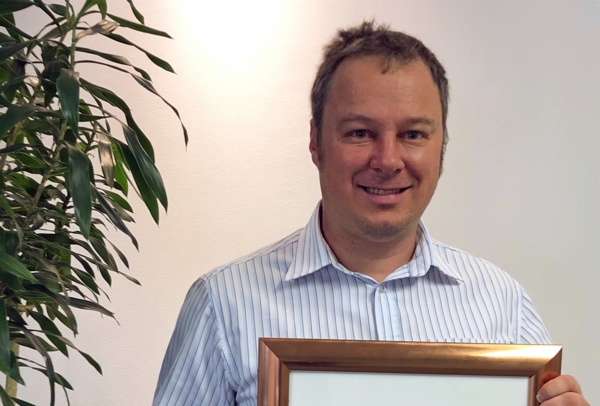

Knight Piésold Wins International Project of the Year Award for the Azambi Hydroelectric Project
July 2, 2019, Johannesburg, South Africa – The Azambi Hydroelectric Project continued to shine at the South African Institution of Civil Engineering (SAICE) Johannesburg Branch Regional Awards. The project won in the International Project of the Year category and is the second award that Knight Piésold has received for the project this year. The SAICE Johannesburg Branch presented the award at a dinner celebration on June 27 at the Houghton Golf Club to recognize technical excellence in the industry.
The Azambi Hydroelectric Project is an 11 MW run-of-river facility located in a remote area of the Haut-Uele province in the Democratic Republic of the Congo. Knight Piésold assisted the Kibali Gold Mine, which is operated by Barrick and owned by a joint venture company composed of Barrick, AngloGold Ashanti, and Société Minière de Kilo-Moto, to develop a purpose-built, low-impact project to support the increasing power demands of one of the largest gold mining operations in Africa.
The project produces approximately 64 GWh of renewable, reliable electricity each year to power the remote Kibali Gold Mine. The project reduces the mine’s overall energy cost and its reliance on diesel fuel—equivalent to US$19.2 million per year in savings. It will become a legacy asset for local communities once the mine has reached its end of life.
The Kibali Gold Mine awarded the construction contract exclusively to Congolese construction enterprises, specifically to uplift and improve social economic status and promote skills transfer. The contractors had no former construction experience in hydropower or large water retaining structures. This necessitated an intensified construction monitoring program focused on team collaboration and risk management to achieve production, quality, and schedule requirements.
The Kibali Gold Mine assigned a full-time owner’s team that acted as the overall project and construction manager. Knight Piésold was retained as the engineer involved in project optimization, project development, detailed engineering, and construction and commissioning supervision.
All parties worked together to overcome challenges and shared knowledge and experience for the project’s benefit. The Azambi Hydroelectric Project demonstrated the importance and benefit of having a cohesive and collaborative team to develop hydropower in Africa. This made it possible to promote run-of-river hydropower development within uncertain conditions and unreliable communications, in a cost-effective, fit-for-purpose, and successful application.